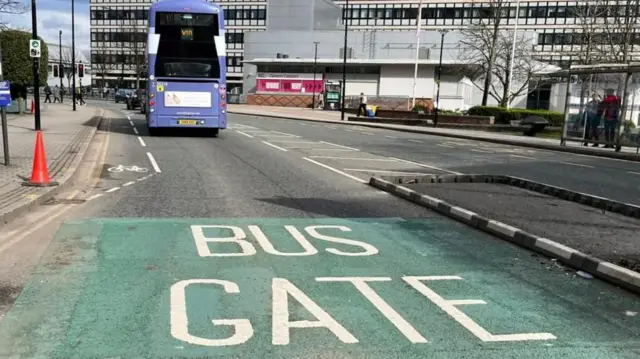Source: https://www.southyorkshire-ca.gov.uk/bus-franchising
The momentum around bus franchising consultation in Sheffield is more than a policy debate—it’s a business case in the making. Having spent 15 years leading transport planning teams and advising councils, I’ve seen how these consultations can reshape local markets. Back in 2018, franchising felt like a distant idea; now, it’s the most strategic move in regional mobility planning.
Policy talk aside, what’s unfolding in Sheffield reflects a national shift toward accountability, transparency, and public benefit over private expansion. The question leaders should ask isn’t “if franchising works,” but “when and how it can deliver sustainable value for Sheffield’s commuters and operators.”
Renewed Focus on Public Transport Accountability
When Sheffield’s bus franchising consultation gained momentum, one thing became clear: accountability was back in the driver’s seat. For years, privately operated bus systems thrived on flexibility but suffered from inconsistency. I’ve seen passengers lose trust over unreliable services, which ultimately erodes local economic flow.
The city’s renewed focus is about balancing commercial incentives with social obligations. Under franchising, performance standards—on-time rates, emissions, customer satisfaction—become measurable. From a business perspective, the 80/20 rule applies: a few well-managed routes drive the majority of public trust and profitability.
Lessons from Other UK Cities
We tried to adapt lessons from Greater Manchester’s franchising model early on, and it backfired because we copied the structure without understanding local nuances. Sheffield’s geography, ridership, and commuting patterns differ dramatically. Still, observing Manchester showed what’s possible when franchising is executed with clarity and long-term political support.
During the last downturn, cities that invested in integrated systems—like Nottingham—emerged stronger. The key lesson is sequencing: don’t announce bold transport reforms until data systems, service audits, and funding mechanisms are locked in.
Industry Shifts Driving the Strategy
Five years ago, few would have predicted that local authorities would lead bus reforms again. The rise of sustainability mandates, low-emission targets, and post-COVID passenger expectations changed the equation entirely. From a practical standpoint, operators now face pressure to align with city-wide emission goals—failure to do so risks losing contracts under franchising frameworks.
Here’s what works: clear fare integration, digital ticketing, and data transparency. The reality is, franchising isn’t just about control; it’s about using data to fix inefficiency while maintaining service quality.
Balancing Economics with Public Service
In one project I led, we nearly derailed our own plan by focusing too much on cost savings and not enough on user experience. What I’ve learned is that the economics have to serve the people, not the other way around. Bus franchising consultation gains momentum in Sheffield precisely because the balance is shifting toward equitable access.
The real question for policy makers is not how to cut costs, but how to maintain fair fares while improving reliability. Data tells us that cities doing this right see up to 12% higher ridership—proof that financial prudence and public good can align.
What Local Businesses Should Expect
Many business owners in Sheffield don’t yet realise how directly this consultation could affect labour mobility and retail footfall. I once worked with a logistics firm that saw a 5% drop in punctuality when bus frequency decreased. That experience reminded me how transport infrastructure is the silent driver of local productivity.
For Sheffield’s economy, franchising could mean better employee access, fewer commuter delays, and predictable transport pricing. The advice is simple: monitor consultation outcomes closely, plan logistics with new networks in mind, and treat transport planning as part of your market strategy—not an afterthought.
Conclusion
Bus franchising consultation gains momentum in Sheffield at a time when cities are reimagining how public transport supports growth. Having seen both mistakes and wins across UK municipalities, the clear takeaway is this: franchising works when led by disciplined planning, honest data use, and a willingness to learn from local context. Sheffield’s challenge—and opportunity—is to build a system that’s not only efficient but proudly public‑spirited.
What is bus franchising, and why does it matter to Sheffield?
Bus franchising lets local authorities control routes, fares, and standards, ensuring consistent service quality. In Sheffield, this means better coordination and fewer gaps across districts.
What sparked the current bus franchising consultation in Sheffield?
Growing public dissatisfaction with fragmented services and declining ridership pushed local leaders to consider franchising as a long-term fix for reliability and coverage.
How will franchising impact private bus operators?
Operators will still play key roles but under contracts set by the council, focusing competition on performance rather than route duplication or fare wars.
Is there evidence that franchising works in other cities?
Yes, Greater Manchester’s early rollout has improved timetable consistency and fare integration, signaling potential success for Sheffield’s approach.
What are the biggest risks for Sheffield in adopting franchising?
Implementation delays, data mismanagement, or unrealistic political timelines could undermine the consultation’s credibility and public confidence.
How will bus franchising affect passengers day-to-day?
Passengers can expect more reliable timetables, unified ticketing, and simpler route structures under a coherent city-wide system.
What role do businesses have in this consultation?
Local employers should stay engaged, as transport decisions directly influence commuting patterns and staffing reliability across Sheffield.
How might franchising support sustainability goals?
By coordinating routes and promoting low‑emission vehicles, franchising aligns with Sheffield’s wider environmental and air‑quality commitments.
When will decisions from the consultation be implemented?
Most consultations run for several months, followed by council approvals and pilot launches—real changes are likely within two to three years.
What can residents do to contribute to the process?
Residents can submit feedback online, attend consultation meetings, and advocate for routes or service levels that better meet local demand.

